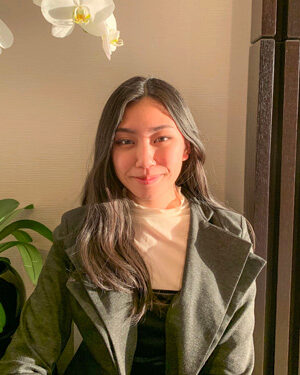 Hello! My name is Corrine Yuan, a sophomore at Wharton studying Business Analytics and Marketing & Operations Management. I’m extremely interested in the intersection between nutrition/wellness and business.
Hello! My name is Corrine Yuan, a sophomore at Wharton studying Business Analytics and Marketing & Operations Management. I’m extremely interested in the intersection between nutrition/wellness and business.
I had the unique opportunity to work with an INSEAD Business School professor over the summer due to the World Research Assistantship Program (WRAP). The program gives Wharton undergraduate students the opportunity to serve as a research assistant at a foreign university or think tank and conduct business-related research for 8-12 weeks during the summer months, where students will work under the guidance of a research advisor at the foreign institution.
This past summer, I worked as a research assistant for Professor Pierre Chandon, a marketing professor at INSEAD. Professor Chandon is The L’Oréal Chaired Professor of Marketing for Innovation and Creativity as well as the Director of INSEAD Sorbonne University Behavioural Lab. His research focuses on studying innovative marketing solutions to better align business growth with consumer health and wellbeing — a topic that automatically resonated with my interests.
As I worked on research with Professor Chandon during the pandemic, I was unable to travel to France to conduct in-person behavioral lab experiments at INSEAD. However, during normal years, students are able to receive a stipend to travel to the location of the university and gain hands-on and in-person experience. Fortunately, I still gained very valuable skills and had an amazing internship experience through Zoom. I worked to assist one of Professor Chandon’s current projects- a study as to how 4 main types of marketing claims respond best to American consumers, Chinese consumers, and French consumers. The four marketing claim types include: “absence of nature” or not adding negatives (e.g., no artificial flavor, no preservatives, no artificial colors); “presence of nature” or not removing positives (e.g., organic, all natural); “absence of science” or removing negatives (e.g., low fat, low calories, light); and “presence of science” or adding positives (e.g., high fiber, high proteins, high calcium).
I began by first conducting and writing a literary analysis to assess scientific literature and analyze the differences between Chinese and American eating habits, with a focus on the definition of what “healthy eating” means. In summary, I found that the diverse views in healthy eating reflect different food-related messages to which participants are exposed both through the media, educational systems, existing food-related health issues, and existing food cultures in their respective countries. I examined how the Healthy Eating Indexes impacts healthy eating conceptions for both groups. Then, I analyzed Chinese and American mothers’ perceptions of healthy eating, and how they directly shape their children’s eating habits. Finally, I examined Chinese and American children’s perceptions toward breakfast foods.
Personally, I learned a lot from this experience. I was able to gain valuable research skills through working on a project that’s an intersection between my interest in nutrition/wellness and business. By the end of the project, I was able to clearly and effectively communicate my ideas through a research paper, comfortably use Excel, and analyze and synthesize data. I was also able to speak with Professor Chandon about his career trajectory and receive mentorship and advice.
I highly recommend all Wharton undergraduate students to check out this amazing program. It truly allows you to conduct thorough research in the areas you’re passionate about, as well as gain great research and business skills.


